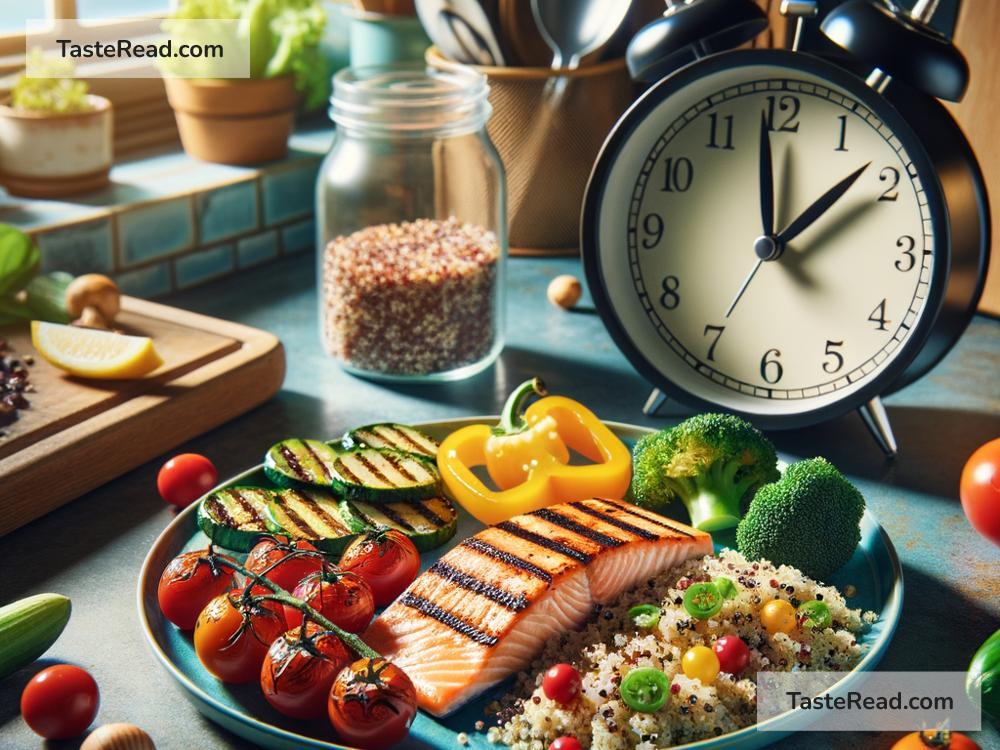Enhancing Meal Timing with the Right Foods: A Simple Guide
Meal timing plays a crucial role in how your body uses energy, processes nutrients, and maintains overall health. By eating the right foods at the right times, you can reduce hunger, boost energy, and even improve digestion. Don’t worry—it doesn’t have to be complicated! In this article, we’ll explore some simple foods that can help optimize your meal timing and keep you feeling your best.
Why Meal Timing Matters
Meal timing is essentially about when you eat and what you eat throughout the day. Choosing the right foods at specific times can support your metabolism, stabilize blood sugar levels, and keep hunger in check. Skipping meals or eating at odd hours can confuse your internal biological clock and make you feel tired, sluggish, or overly hungry.
The goal is to stay energized while avoiding extreme hunger or overeating. Eating smarter doesn’t mean cutting out your favorite foods—it’s about adding ingredients that help your body perform better at specific times of the day.
Breakfast: Start Strong
They say breakfast is the most important meal of the day, and for good reason! It kickstarts your metabolism and provides the fuel your body needs after a long night of fasting. Opt for foods that deliver a good balance of carbohydrates, proteins, and healthy fats.
-
Whole Grains: Oatmeal, quinoa, or whole-grain bread are excellent sources of slow-digesting carbohydrates that provide steady energy throughout the morning. They’ll keep you full longer compared to sugary cereals or pastries.
-
Eggs: Packed with protein, eggs help stabilize blood sugar and reduce mid-morning hunger. Pair them with some vegetables for added nutrients.
-
Greek Yogurt: Loaded with protein and probiotics, Greek yogurt is a great option for digestion and sustained energy. Add a handful of fresh fruit or nuts for flavor.
-
Bananas: Bananas are rich in carbohydrates and potassium, which can energize your muscles and keep your hunger in check. They’re perfect to grab on the go!
Pro Tip: Try to eat breakfast within an hour of waking up to jumpstart your metabolism.
Mid-Morning Snack: Keep the Crash Away
If you feel hungry between breakfast and lunch, snacking on the right foods can help you avoid an energy slump. The key is to pick snacks that are light and nutrient-dense.
-
Nuts: Almonds, walnuts, and cashews are full of healthy fats, proteins, and fiber. A small handful can keep you satisfied while improving brain function.
-
Fresh Fruit: Apples, oranges, or berries are low-calorie options packed with vitamins, antioxidants, and natural sugars. They’re great for a quick energy boost.
-
Hummus with Veggies: Dip celery sticks, carrots, or cucumber slices in hummus for a crunchy, protein-rich snack.
Lunch: Stay Balanced
Lunch is your opportunity to recharge, so aim for a healthy balance of protein, whole grains, and colorful vegetables. Avoid heavy, greasy foods that can make you feel sluggish for the rest of the day.
-
Lean Proteins: Chicken, fish, tofu, or beans provide energy without weighing you down. Pair them with whole grains like brown rice or quinoa.
-
Leafy Greens: Kale, spinach, or arugula are nutrient-dense and low in calories. Eating greens can help you feel full without overeating.
-
Healthy Fats: Avocados, olive oil, or seeds (like sunflower or chia seeds) can enhance satisfaction and provide long-lasting energy.
Pro Tip: Plan lunch around your schedule. If you’re busy, prepare salads, wraps, or grain bowls ahead of time.
Afternoon Snack: Beat the Slump
It’s common to feel tired in the afternoon, especially if your last meal was hours ago. A smart snack can help you regain focus and prevent overeating at dinner.
-
Trail Mix: A mix of nuts, seeds, and dried fruit provides healthy fats and proteins. Avoid trail mix with added sugars or candy.
-
Dark Chocolate: If you’re craving something sweet, a square or two of dark chocolate (70% or higher) can boost your mood and energy without guilt.
-
Hard-Boiled Eggs: Portable and rich in protein, hard-boiled eggs are a great way to fight off hunger and stay focused.
Dinner: End Light and Healthy
Dinner shouldn’t be the heaviest meal of the day. Eating a large meal too late can disrupt digestion and sleep. Focus on smaller portions, light proteins, and plenty of vegetables.
-
Fish: Salmon, cod, or tuna are high in protein and omega-3s, which can promote heart health and actively aid digestion.
-
Sweet Potatoes: They’re a great source of complex carbohydrates that provide energy without blood sugar spikes.
-
Steamed Vegetables: Broccoli, cauliflower, zucchini, or green beans are easy on the stomach and packed with nutrients.
Pro Tip: Eat dinner at least three hours before bedtime to prevent digestive issues and encourage better sleep.
Hydration Matters
Don’t forget about water throughout the day! Staying hydrated helps your body process nutrients and maintain energy. Herbal teas or flavored water can be great alternatives if you’re bored of plain water.
Final Thoughts
Optimizing meal timing doesn’t mean complicated rules or expensive foods. It’s all about listening to your body, planning ahead, and choosing simple, whole foods that support your energy and digestion. By incorporating these smart food choices into your day, you can make every meal work for you while feeling great. Happy eating!


